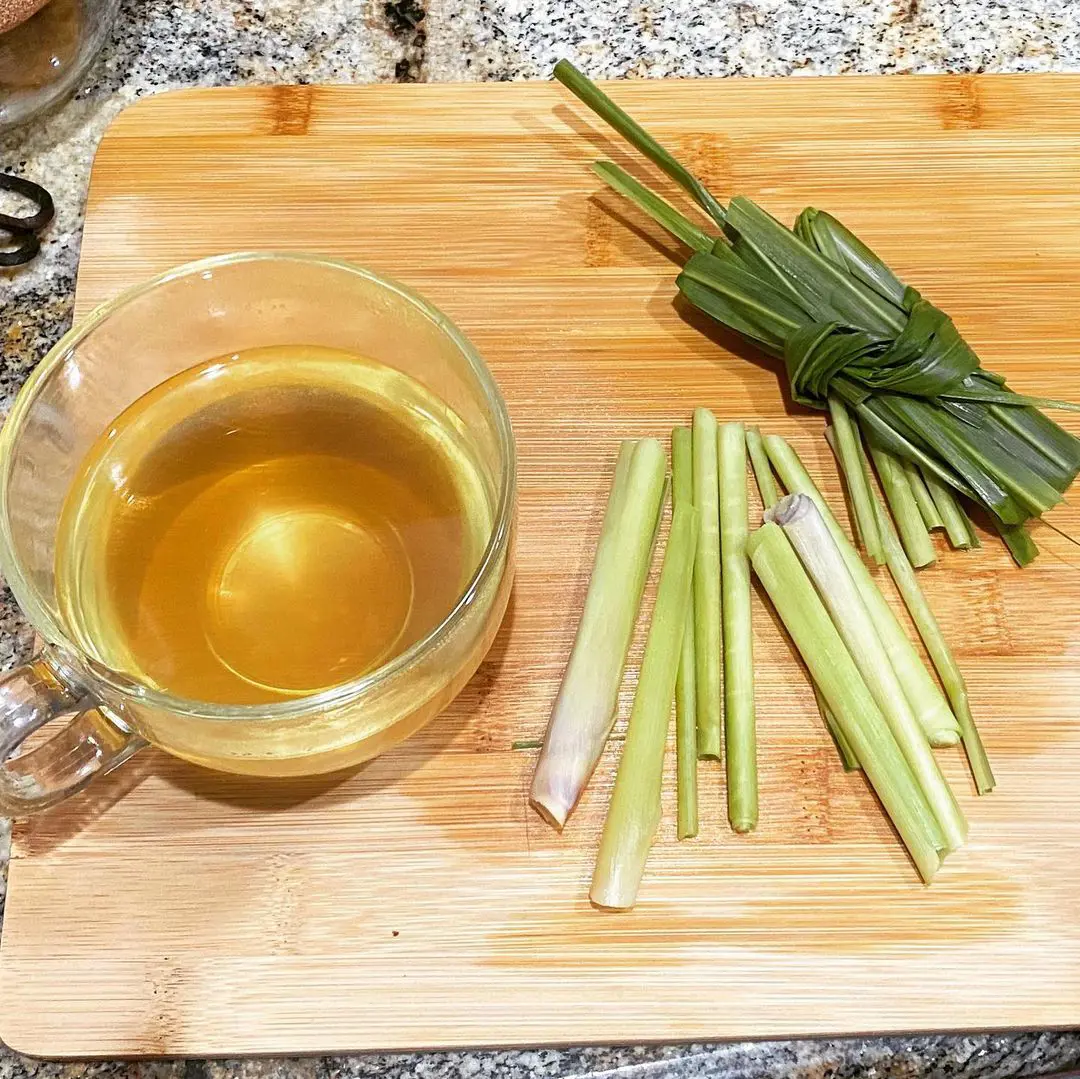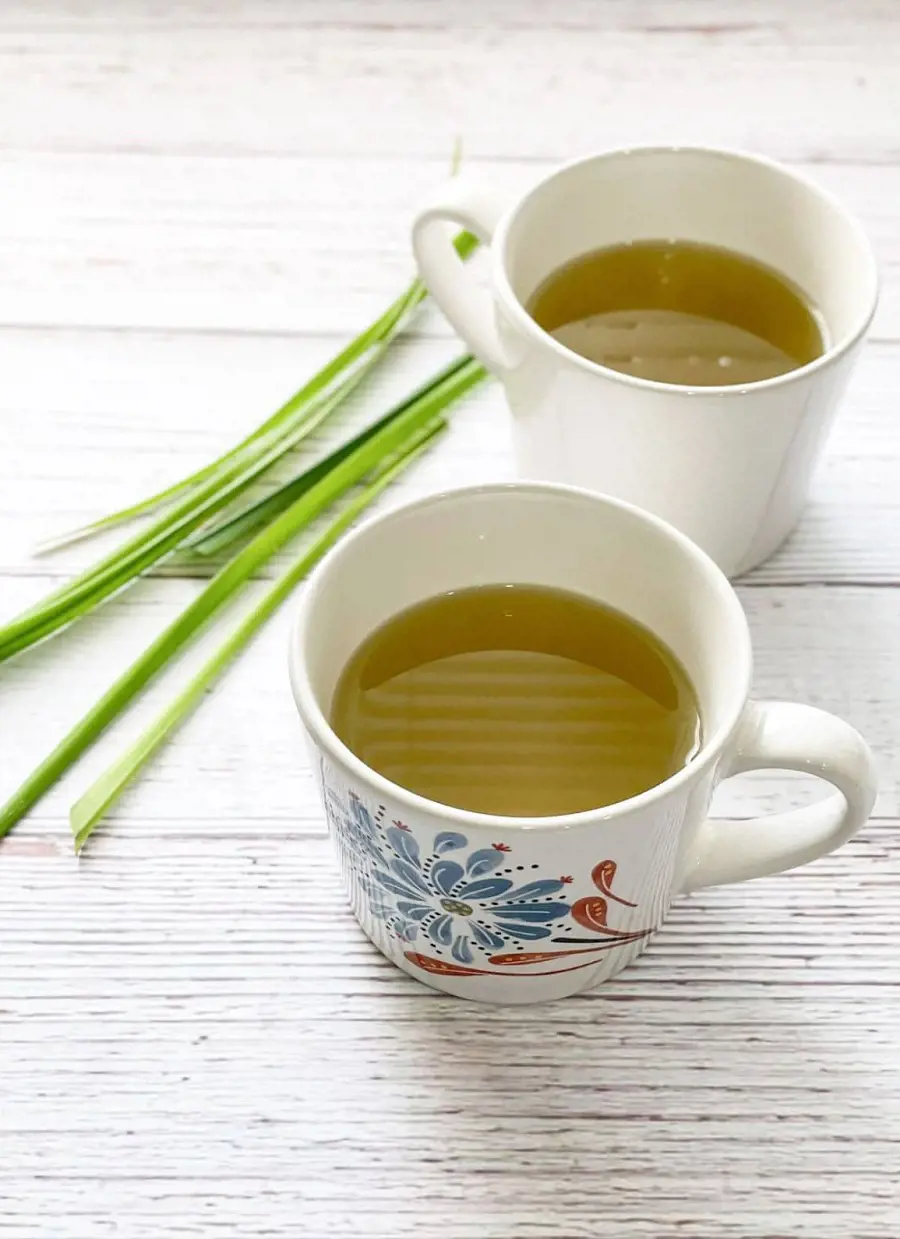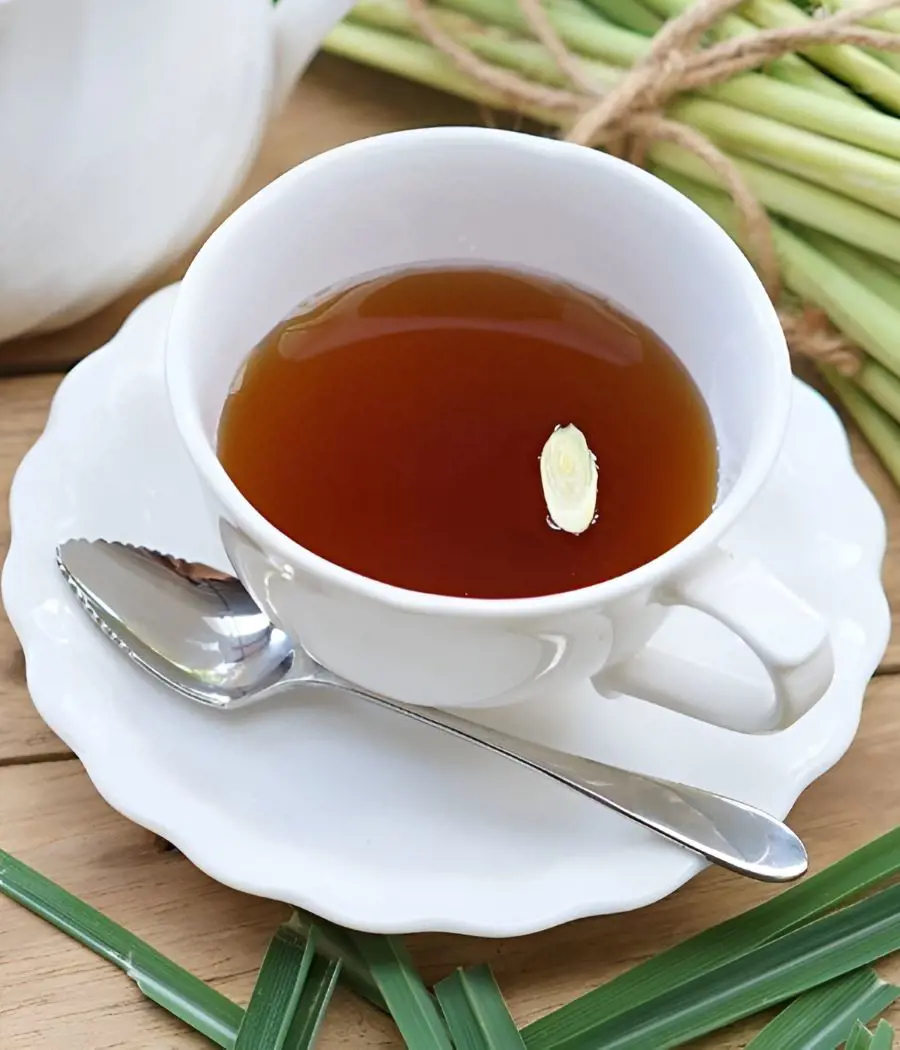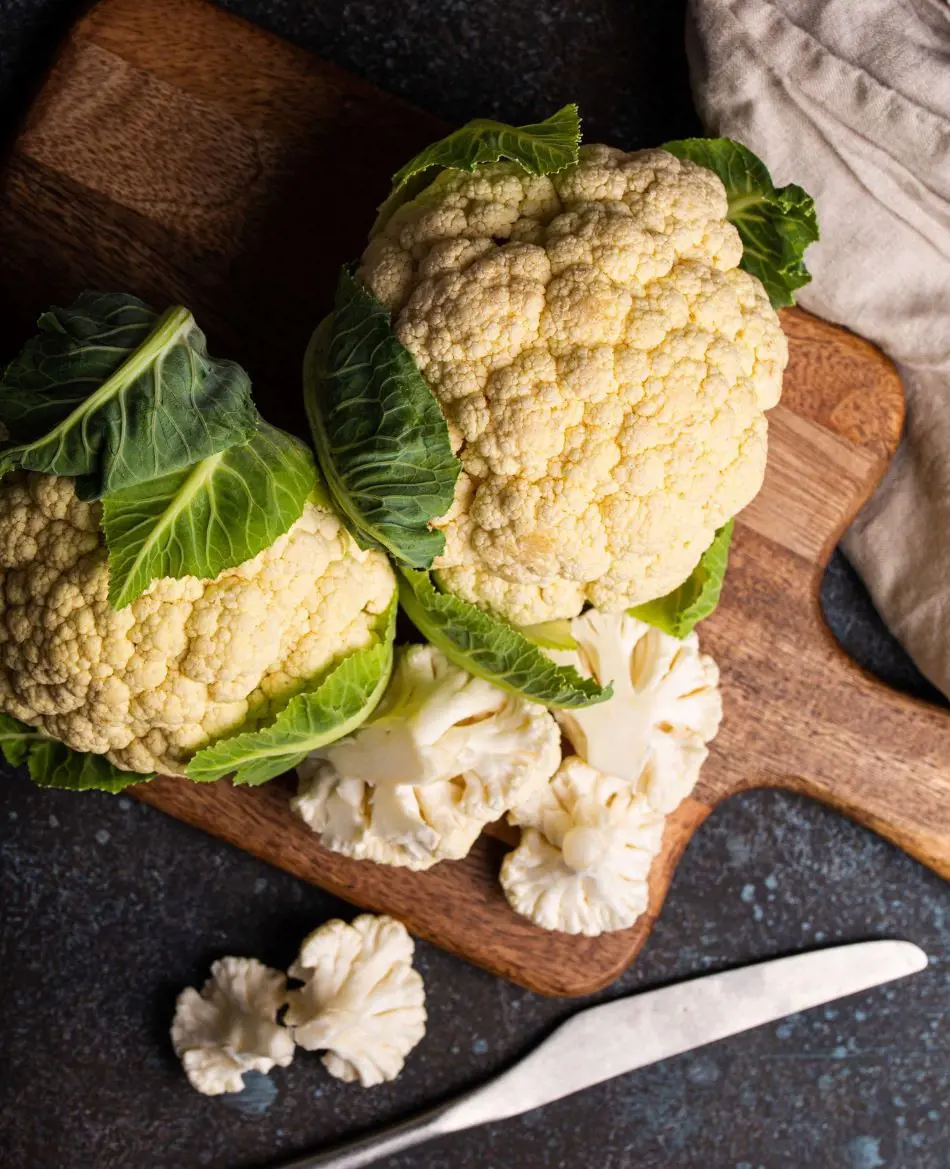11 Lemongrass Tea Benefits You Should Know About

Lemongrass, also known as citronella, is a tall, stemmed plant with a fresh, lemony fragrance and a burst of citrus flavor. Widely adopted in South Asian cuisine, this versatile herb is essential in cooking and a delightful ingredient in tea.
From stress relief to digestive wellness, sipping on a cup of this tea is a great choice for a soothing and healthy drink. Learn more about these health benefits of drinking lemongrass tea.
1. Has Antimicrobial Properties
Lemongrass tea has infection-preventing capabilities, all thanks to its antimicrobial properties. This herbal remedy even contributes to the treatment of oral infections and cavities.
Research shows when lemongrass oil and silver ions are combined, they can work together against various bacteria and fungi. Additionally, lemongrass appears to play a role in reducing thrush, a fungal infection commonly affecting individuals with compromised immune systems, such as those with HIV.
2. Relieving Anxiety

Sipping a cup of hot lemongrass tea goes beyond mere relaxation, as it holds additional anxiety-reducing properties. Research suggests that the aroma of lemongrass itself has potential benefits for individuals dealing with anxiety. Many already turn to inhaling lemongrass essential oil for relieving stress.
Stress often leads to high blood pressure, and studies have consistently shown that aromatherapy can alleviate stress and anxiety. In one study, the lemongrass and sweet almond massage oil blend was used during weekly massages for three weeks, which resulted in lower diastolic blood pressure for participants.
3. Reduce Pain And Swelling
Drinking lemongrass tea could potentially play a vital role in decreasing the sensation of pain, as it acts as a pain blocker. It also contains chemicals that are known to alleviate pain and swelling.
Besides this, it has a potent antibacterial and antifungal agent, showcasing anti-inflammatory and antioxidant properties. It contains quercetin, a flavonoid that has antioxidant and anti-inflammatory benefits.
This dual action helps combat inflammation, potentially hindering cancer cell growth and acting as a preventative measure against heart disease.
4. Boost Red Blood Cell Levels

Consuming lemongrass tea daily for a month can significantly increase hemoglobin concentration, packed cell volume, and red blood cell count.
Research believes that the antioxidant properties present in this beverage might be a contributing factor. So, drinking this delightful flavor tea is a natural and enjoyable way to support your body's red blood cell production.
5. Act As A Diuretic
Lemongrass stands out as a recognized diuretic, meaning it has the ability to promote frequent urination. This diuretic quality loosens the elimination of excess fluid and sodium from the body, a function that results in medical conditions such as heart failure, liver failure, or edema.
One study on rats showed lemongrass tea diuretic activity comparable to green tea varieties over a six-week period. Significantly, this diuretic effect was observed without causing any damage to organs or triggering unwanted side effects. So, it's a natural diuretic option for your overall wellness without any adverse effects on your body.
6. Relieve Bloating

Drinking lemongrass tea has diuretic effects, prompting the kidneys to increase urine production. This diuretic quality proves beneficial in the situation where water retention contributes to bloating, a common issue in premenstrual syndrome (PMS).
A comforting cup of this tea can serve as a go-to remedy for upset stomach, stomach cramps, and various digestive issues. It has also shown effectiveness against gastric ulcers. Lemongrass essential oil has been found to protect the stomach lining, especially against damage caused by aspirin and ethanol.
7. Regulate Cholesterol
Maintaining cholesterol levels stable is essential for preventing heart attacks and strokes. Traditionally, lemongrass has been used to cure high cholesterol and manage heart disease risk.
It is very effective for decreasing bad LDL cholesterol. Research indicates that the consumption of lemongrass extracts may contribute to lowering cholesterol.
8. Has Potent Anticancer Properties

Various components within lemongrass actively contribute to the fight against cancer. They achieve this by directly generating cell extinction or enhancing the immune system's capabilities. As a result, the compounds support the body to combat cancer.
It includes a vital natural flavoring compound called citral, which is believed to have powerful anticancer properties, especially against certain types of cancer cell lines. This substance destroys cancerous cells while leaving healthy cells untouched. So, including lemongrass or other herbs in your tea that contain citral works as a preventative against certain types of cancer.
9. Reduces The Risk Of Obesity
Drinking lemongrass tea helps to reduce the risk of obesity, a leading driver of heart disease, diabetes, and some cancers, as it assists you in your weight loss journey.
It's a natural diuretic and kick-start your metabolism. This detox tea supports your weight loss, as the diuretic properties of lemongrass may contribute to reducing some pounds.
As a healthier alternative, swapping sugary drinks like soft drinks with herbal teas, such as lemongrass tea, can assist in achieving weight loss goals. However, don't exclusively take on lemongrass tea to lose weight.
10. Promote Oral Health

In regions where lemongrass is native, people often chew on lemongrass stalks to improve dental health and maintain a clean mouth. Even its antimicrobial properties make it an effective remedy for treating oral infections and cavities.
Its essential oil shows antimicrobial capabilities against bacteria, particularly with tooth decay. So, incorporating lemongrass tea is an easy way to promote oral health by combating harmful bacteria.
11. Helps Flush Out Toxins
Lemongrass tea can effectively remove toxins from the liver, kidneys, digestive system, and bladder. Consuming the herb strengthens digestion, increases antioxidant properties, and acts as a diuretic, increasing urine output to flush out harmful waste.
This tea acts as an ideal companion for your body's detox journey, helping flush out toxins and excess fat. With its anti-microbial, anti-fungal, anti-bacterial, and diuretic properties, this drink is a total detoxifying agent for the pancreas, kidneys, bladder, and digestive tract.
Lemongrass Tea Nutritional Value

Lemongrass tea packs small amounts of Vitamin C, Vitamin A & B, iron, phosphorus, calcium, and potassium. It's low in calories, as drinking one glass of lemongrass tea supplies less than 1% of the total daily calorie need of a standard adult diet of 2000 calories.
One glass of lemon tea contains:
- Calorie: 11
- Protein: 0.5 gram
- Carbphydrates: 2.3 gram
- Fiber: 0.5 gram
- Fat: 0.1 gram
- Vitamin A: 121.5 mcg, i.e., 3% of the daily value (DV)
- Vitamin C: 6% of DV
- Vitamin B9 (folic acid): 7% of DV
- Potassium: 54.2 mg
- Phosphorus: 12.2 mg
- Calcium: 19.9 mg
Besides this, lemongrass tea contains antioxidants like phenolic compounds and flavonoids, which assist in fighting oxidative stress in the body. However, the nutritional content of the tea can vary based on factors such as the preparation method and the concentration of lemongrass in the tea.
How To Make Lemongrass Tea?

What else could one want than a steaming hot cup of lemongrass tea? Do you know this healthy and refreshing drink is easy to make? Here's a simple way to do it:
Ingredients:
- About 2 or 3 stalks of fresh lemongrass
- 4 cups water
- Honey or sugar (optional)
Method:
- Take 2 or 3 stalks of fresh lemongrass and cut off the root end and the green upper part while leaving its middle portion. Now, peel off the tough outer layers until you reach the softer, pale part.
- Smash the lemongrass or chop it into smaller pieces to release the taste.
- Get 4 cups of water to a boil in a pot. Once the water is boiling, add the crushed or chopped lemongrass to the pot.
- Reduce the heat to low and let the lemongrass steam in the water for about 5-10 minutes. It allows the flavor to infuse into the water.
- After steaming, strain the drink to remove the lemongrass pieces. If you like your tea sweet, you can put a natural sweetener, honey, or sugar while the tea is still warm. Stir well until it dissolves.
- Pour the lemongrass tea into your favorite mug and enjoy! You can also serve it over ice too.
Now, enjoy a moment of relaxation with this refreshing beverage every day.
Recent posts
Nutrition
Nutrition
Licorice Root: Benefits And Uses
You can spell it liquorice or licorice; this herb or root has been in use for centuries in most medicinal applications, as a natural sweetener and to enhance flavors. Regarding its origins, it comes from the root of the "Glycyrrhiza galbre" plant and...
Nutrition
Is Salmon Good For You? Nutritional Facts and Benefits
Salmon fish is a staple diet throughout the world, popular as a super food for its nutrients. Whether savored in sushi, poached, grilled, roasted, or pan-fried, salmon offers minerals and vitamins that contribute to healthy bodily functions. In addit...
Nutrition
25 Smoked Salmon Recipes That You Will Enjoy
Salmon is a silver-colored fish that is loaded with many nutrients, vitamins, and omega-3 fatty acids. Smoked Salmon is better for improving your health and reducing the risk of cancer, heart-related diseases, fights inflammation, reduces anxiety and...
Nutrition
Are Sausages Healthy? Nutrition And Health Benefits
Sausages are tasty in an addictive way, making them one of the most popular foods worldwide. You may have enjoyed this convenient food often, whether on a bun with mustard or grilled on a barbecue, the simple preparation methods are what makes its co...
Nutrition
20 Vegetables That Are Rich In Iron
Iron is essential for our bodies to function well. When we don't get enough iron, we often feel weak and tired. It's important to address iron deficiency early by eating the right foods. Fortunately, many vegetables are rich in iron and can help prev...
Nutrition
15 Cauliflower Nutrition Facts And Health Benefits
Cauliflower, a cruciferous vegetable, resembles a white variation of its relative, broccoli. Like broccoli, it has closely bunched florets attached to a thick core, often surrounded by a few leaves. While white is the most common color, cauliflower i...







